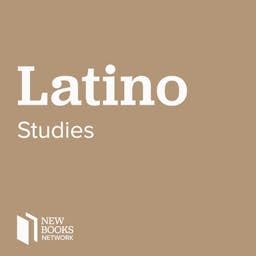Dr. Andrea Flores’ most recent book, The Succeeders: How Immigrant Youth Are Transforming What It Means to Belong in America (University of California Press, 2021), is a detailed account of how immigrant youth in Nashville, Tennessee negotiated the stakes of academic achievement by reproducing terms of belonging while at the same time recasting what it means to belong in the United States. By focusing on a nonprofit college access program for Latino youth from which the title of the book is derived, Flores argues that Succeeders’ educational achievements were viewed “as positive moral proof against deficit constructions of Latinos while also maintaining a link to educación’s [emphasis in original] personal, cultural, and familial value” (16). The hybridity of assigning moral value to book learning while also hinging their striving to familial networks is what Flores believes to be critical to the Succeeders’ perception of self. By offering a radically different route to belonging through the vehicle of family and care, the Succeeders hoped to earn not just their own national membership, but also the membership of those near and dear. Flores conducted ethnographic research for twelve months while also serving as a volunteer for the Succeeders program of southern Nashville across four campuses for the academic year 2012 - 2013. She observed effective communication skits, field trips, organizational meetings, community service activities, musical performances, athletic games, scholarship selection committees, and graduation ceremonies to best understand the lived experiences of Succeeders within and outside of their educational institutions. Flores also conducted thirty-one semistructured interviews with Succeeders whose families were primarily from Mexican and Central America. Further, half of the interviews included undocumented youth, and students from all levels of academic achievement were selected. Strategic selecting of Succeeders allowed Flores to examine how students across a variety of academic preparations and immigrant backgrounds perceived themselves within larger conceptions of Latindidad and educational achievement. Interviews with the program’s leaders, teachers, and admissions officers revealed the internal dialogues of those most tasked with the Succeeders’ success. A robust textual archive in the form of college admissions handouts, college entrance essays, and Succeeders curricular materials were collected by the author. These mixed methods allowed Flores to provide detailed and rich accounts of how Latino youth navigated the college application process, the end of high school, and their personal lives. Jonathan Cortez is currently the 2021-2023 César Chávez Postdoctoral Fellow in the Department of Latin American, Latino, and Caribbean Studies at Dartmouth College. You can follow Jonathan on Twitter @joncortz Learn more about your ad choices. Visit megaphone.fm/adchoices Support our show by becoming a premium member! https://newbooksnetwork.supportingcast.fm/latino-studies
Más
Menos
 1 h
1 h 37 m
37 m 1 h
1 h 53 m
53 m 1 h y 14 m
1 h y 14 m 1 h y 17 m
1 h y 17 m 1 h y 8 m
1 h y 8 m 56 m
56 m
